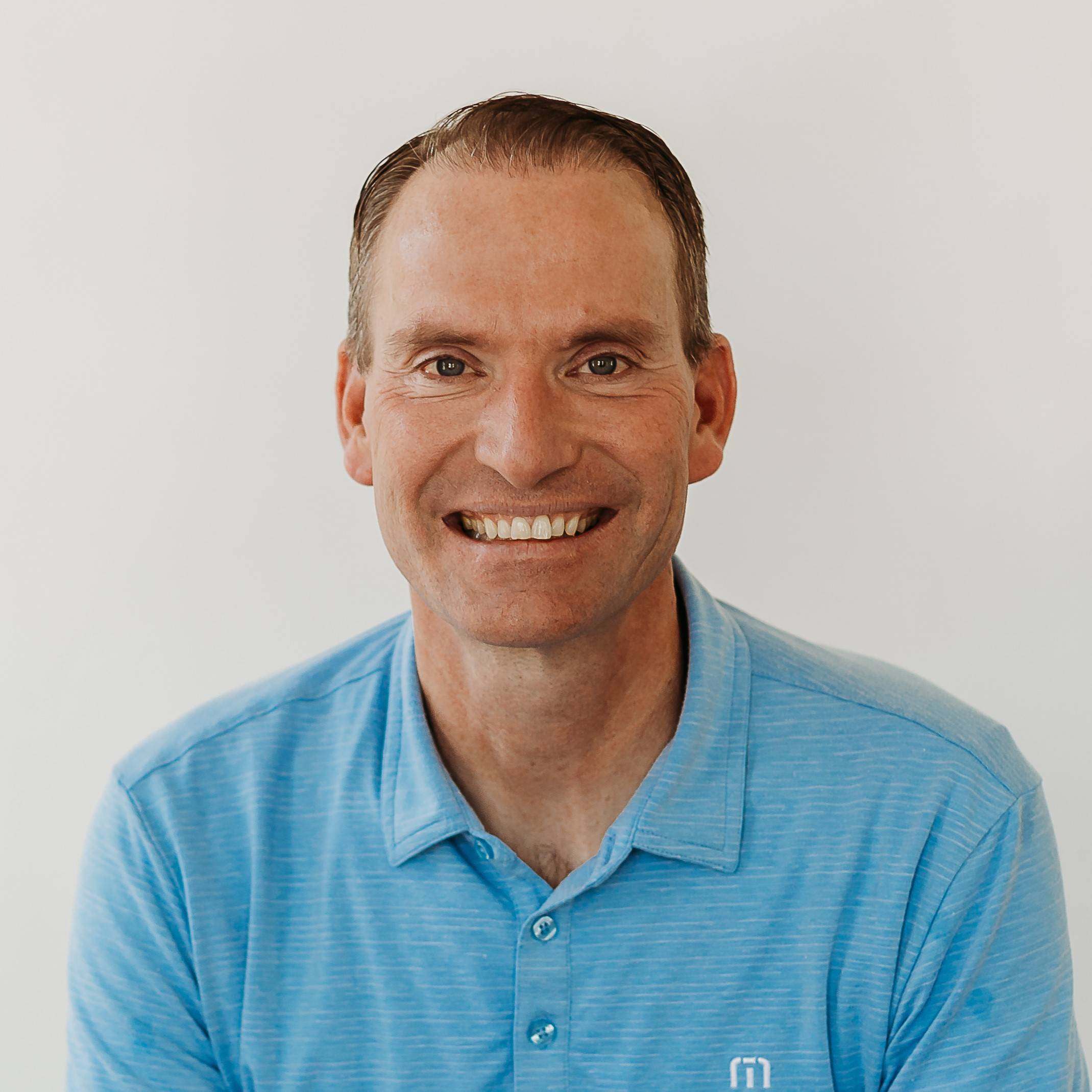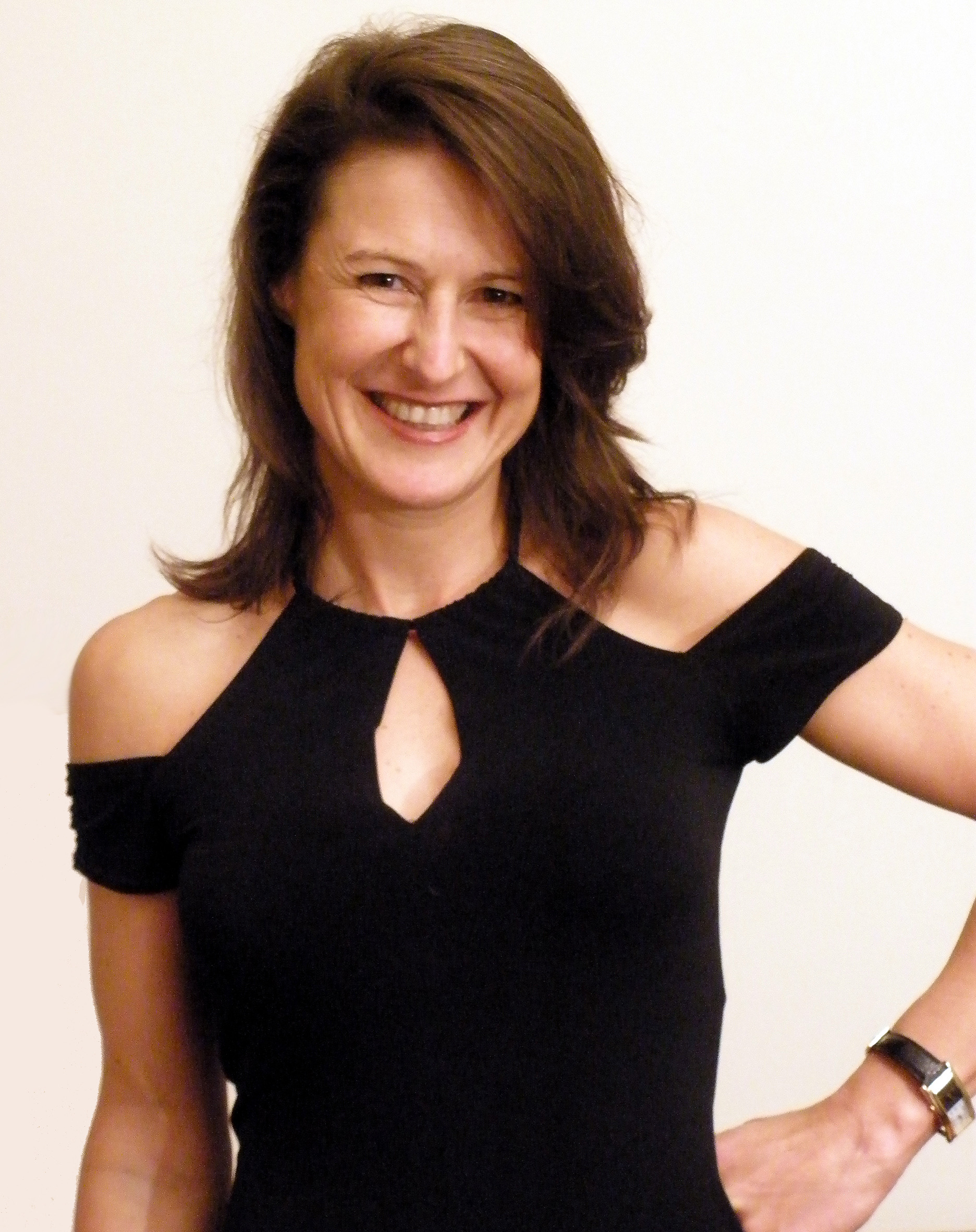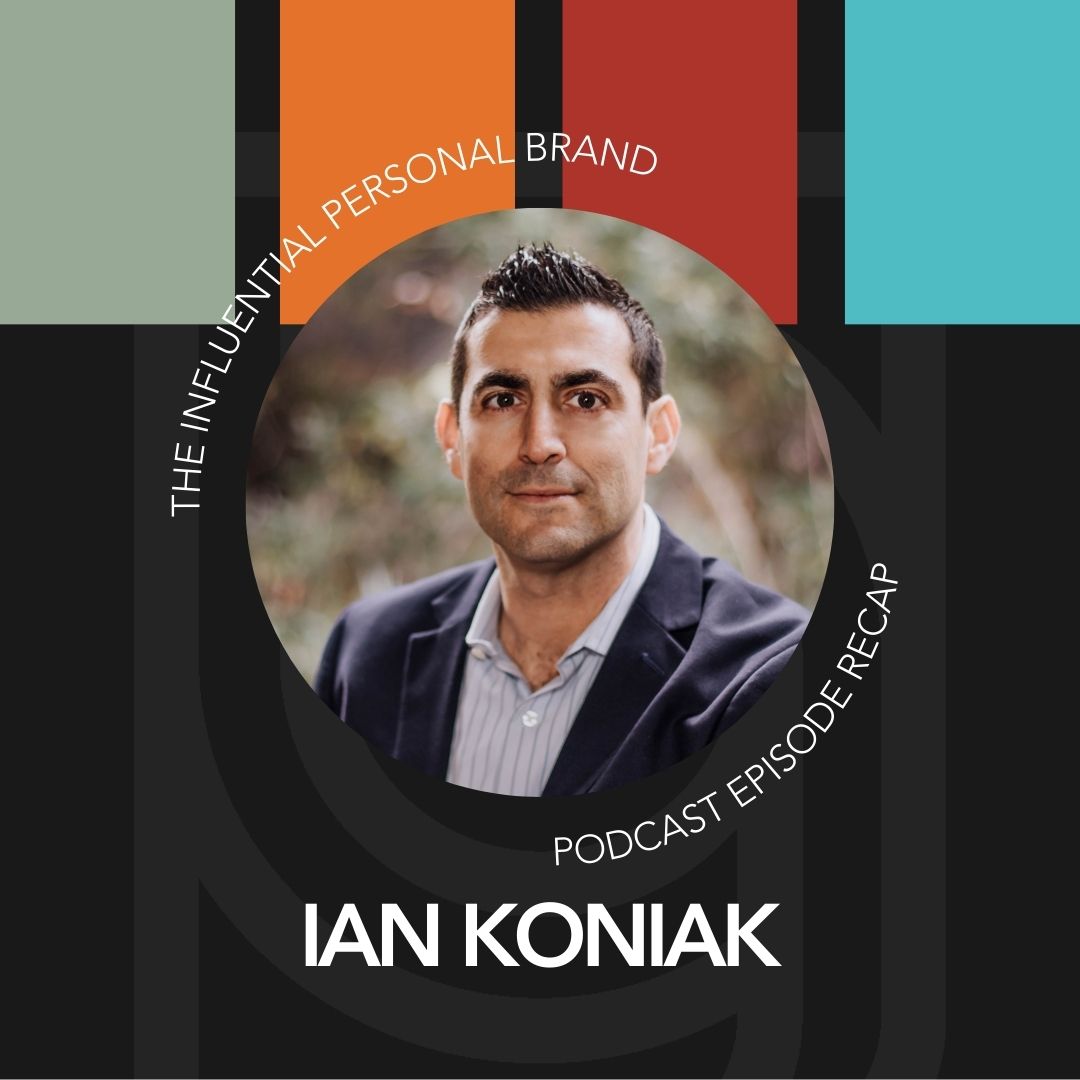RV (00:02):
Well, today you’re gonna hear from someone who is a dear friend of mine. His name is Clate Mask and Clate’s product, his company, his life mission, has radically changed my life, our lives, our business. He is a huge part of what has made Brand Builders Group successful, although many of you don’t realize the role that he has because it’s so behind the scenes but it is so critical to everything we do, and you’re gonna hear about that. How is that possible? Well, clay is the CEO and the co-founder of Keep, which is the world’s leading business automation software. It is round a hundred million dollar company. It’s a SA software as a service, a SaaS company. And it is the business automation tool that AJ and I have used to now build six different multimillion dollar businesses, two of which have become eight figures including Brand Builders Group, which has gone from zero to eight figures in five years.
RV (01:00):
The reason why that has happened, a huge part of why that has happened is because we have built our businesses on kes platform. We use Keap to automate our marketing, to automate our sales pipeline, to automate our customer experience, to automate our customer service, to automate our onboarding, our recruiting, our hiring, our our interviewing. We automate our payments, we automate our collections. We automate so many parts of our business. We automate so many parts of our content marketing and our podcast production, and virtually all of them are, can connected back through this software. And so much so that we have been building a custom version of that software called Instant Automation Toolkit, which has been over coming up on five years in development. And we’re just about to release it. And so I thought, Hey, you need to meet this man. The man that was you know, one of the original visionaries of the whole marketing and business automation space. And Clay is also a New York Times bestselling author. He is a multi Inc. 5,000, you know, CEO. He is an award-winning entrepreneur. And he has a book that just came out called Conquer the Chaos. And we’re gonna talk about exactly what that means. And part of what Clate has done is build an amazing personal life in addition to an amazing business. And so we’re gonna talk about how to not only automate your business, but also win in your personal life at the same time. So Clate, welcome to the show, my brother.
CM (02:33):
Hey, thank you Roy. That was a heck of an intro. I appreciate you
RV (02:36):
. Yeah, man, I, I, I, I mean it, I I would not endorse something like that. And, you know, we are building a whole function, a whole division of our company this instant automation toolkit product that, that is, I I think this is the first time I’ve even talked about it on the podcast ’cause it’s been in development, but it’s becoming real because of you and, and, and, and because of how much, you know, the, the tool and your team ha has built. I don’t wanna talk, I don’t wanna dive into the technology though. I wanna talk about your book Conquer the Chaos, because, you know, they’re very much related. But, but I think the, the real issue is, is chaos. So why do you use that word chaos? Where does, where does that term or that concept come from? How does that show up and affect personal brands and, you know, small business owners, like, you know, talk to me a little bit about that. Yeah,
CM (03:32):
You bet. You know, we, we’ve worked with entrepreneurs for over 20 years helping them to achieve their, their goals and dreams. And, you know, when everybody gets into business, they have this, this dream of freedom. They’ve got this view of what things are gonna be like when they get to, you know, stick it to the man, have no boss, do what they wanna do, and have all the time in the world and the ability to make all the money they want. And then they get into it and oh my gosh, there’s so much to do. There are never enough hours in the day. There’s a feeling of great overwhelm. Things are slipping through the cracks. And you feel like, oh my gosh, how can I clone myself? I, you know, I I I’ve gotta figure out some way to get all of this stuff done. That’s the chaos. And, and it’s, it’s a, it’s a sense of overwhelm. It’s things slipping through the cracks. It’s just never enough hours in the day. And where it really comes from when you get right down to it, it, it actually comes from inadequate systems and processes. Mm-Hmm. And that’s not a, you know, it’s not a sexy thing people like to think about or talk about. And, you know, it’s a lot more fun to talk about sales and marketing and frankly
RV (04:37):
No one, no one, no one puts on their vision board systems Exactly. Processes, . Exactly. Like not on the vision board.
CM (04:45):
Exactly. Exactly. And, and frankly, you know, we, as you know, we built up Infusionsoft as the leader in marketing automation that was about doing all of the marketing and sales stuff. But what we, what we learned over the over time was, it’s one thing to grow your top line revenue. It’s a very different thing to have your bottom line take home pay bank account, and more importantly, totally your time and the sense of control and the freedom that you actually feel in the business. I mean, you, you and I both know this, I’m sure a lot of listeners are hearing this, it is crazy how many people get to a certain revenue mark in their business. Seven figures is a real, is a real common one. People think, man, I’m gonna get to that seven figure mark and now, you know, think I’m gonna have, there’s this sense of what they’re going to have in terms of bottom line, take home pay, time, freedom, control. Mm-Hmm. . And almost invariably they get to that point and they’re like, whoa. Well, I guess I just gotta, you know, I don’t have all those things, so I guess I just gotta make it to 2 million, 3 million, 4 million. And, and the pattern is that what people think they’re going to get in terms of profit, take home pay freedom. It’s, it just keeps moving out further and further. And at some point you gotta ask yourself, why is that? Well, it’s because of the chaos.
RV (06:04):
Yeah. I mean, it’s, it’s funny, I, I love the pivot that you guys made from Infusionsoft is marketing automation to keep, is business automation. ’cause That really is true about us. Like, even our stories, like we are not, honestly, we, we’ve never really been the best marketers in the world. Like we’ve never had millions of followers. We’ve just made millions of dollars. Mm-Hmm. in revenue and profit. Mm-Hmm. . And, and I think a huge part of that was because we saw the light early of how to take the, the power of keep and automate, not the just the marketing, but automate all the operations. And if you don’t, you know, if, if you just think about it for a second, you go, man, if you automate just your marketing and you really grow all your revenue, but the rest of your business processes are a mess, you literally are going to add more chaos.
RV (06:58):
Like, you’re just Right. You’re the, you’re adding more customers, more disorganization, more problems, more complexity, more challenges. It’s like you really need to have the backend tight and, and, and cleaned up. So I love where you guys made that pivot from marketing automation as Infusionsoft to business automation is key. ’cause It really is, I think your, your, your bread and butter now, you talk about six keys in the book. Okay. Yeah. So, so, so conquer the chaos. WW walk us through a couple of those. Yeah. Because I, I think, you know, to me your message is really clear, how do I conquer chaos and achieve freedom through business automation? Right. Right.
CM (07:45):
That’s it in a nutshell. Yep. So, so
RV (07:47):
Walk us through then, like kind of the six, you know, kind of keys of, of how to actually execute that.
CM (07:53):
Yeah, you bet. The, the keys are actually, so the, the book is Conquer Cast, the Six Keys to Success for Entrepreneurs. And the first three keys are actually personal. And the second three are business with automation being, you know, the crucial show. You know, kind of the crux of it. But the reason I wrote it that way is because after more than two decades of working with entrepreneurs very closely and seeing, seeing what their lives look like as they, and
RV (08:16):
How many customers have you guys had?
CM (08:18):
We, we’ve got over 200,000 users of our software. We’ve got over 20,000 businesses using the software. And over the years we’ve probably worked with 50,000, you know, so, so we’ve
RV (08:29):
Worked 50,000 entrepreneurs. Like you, when you say I’ve worked with entrepreneurs, it’s not like, oh, I’ve spent time around a couple of ’em. Like it’s
CM (08:35):
No, and it’s working closely with them, seeing very closely their business, getting to know them. I mean, the number of mastermind groups and, and conferences and coaching, coaching meetings. I mean, you, I’ve, I’ve worked so closely with entrepreneurs and what I see over and over and over is something that just compelled me to write the personal part of the book. Because what I see is the business becomes so dominant that, that their, their lives get out of whack. And they, over time, they subtly and gradually make trade-offs in favor of the business that cost them what they care about the most in the end. And so, you know, when you see people’s financial family health, you know, when you see those things really melt down and, and some of the most, you know, very, very well known entrepreneurs that, you know, I, you know, people would know if I said their names and I see them closely, and I see them as clients and friends, and, and then I see it over and over and over with small businesses everywhere.
CM (09:38):
And I’ve, I’ve experienced it, I call it the dark side of entrepreneurship. And it is that it’s not just the, the, the struggles of entrepreneurship, it’s actually also when the business is very successful and the way that it dominates the life of the individual. So the first three keys are the personal keys, and they are actually about conquering the chaos inside getting your, getting your per getting personal life. Right. Because when I say the six keys to success for entrepreneurs, I define success right at the beginning of the book, let’s get on the same page what we mean by, by entrepreneurial success. And I say it’s balanced growth in your business and personal life that produces freedom. And if you’re, if you don’t get that balanced part, right you know, I’ve seen a lot of people who are really excited about their business goals and achieving them, and, and then they end up having great regrets. And I just think that’s a travesty. And I don’t , you know, I don’t wanna see entrepreneurs do that. So, so, and
RV (10:30):
I think, I think a really good point that people probably don’t realize is that even if your business is successful, it can be a catalyst for your personal life failing. Yes. Like, I don’t, I don’t think people equate that. Right. So just to sort of underscore that point is to go, man, it’s hard to make a business successful. And even if you pull that off, like it could, that it could, it could work against you in your personal life and, and they don’t have to though.
CM (11:00):
That’s right. If you’re intentional about it and you set it up. So the three, the three, the first three keys are personal and it’s mindset, vision for your life and rhythm of execution, mindset, vision, rhythm. When you put the, when you get the mindset right from the beginning, get the vision straight. Now the business fits into your life vision. I’m not talking about the business vision here. I’m talking about the life vision. Now the business fits into the vision. And then a, you know, how do you execute that in a way that works for your business, your life, your, your personal life in all areas? So that’s, I feel very passionate about that because I’ve spent so much time working with entrepreneurs and seeing the pitfalls of it and experience it personally, real, you know, recognizing and kind of flirting with that dark side and understanding how challenging that can be.
CM (11:42):
And when you get the, the business keys, right? The business keys are strategy, automation, and leadership. When you get the business keys right, it dramatically improves the personal side and fuels your life vision. And when you get the life vision right, and you have your rhythm of execution going, it dramatically improves your business so that you’re not getting burned out, overwhelmed, redlining at work. So that’s, those are the six keys. You know, the, you said it really well. The, the summary of it though is how do you go from chaos to freedom through automation? And, you know, I I start with the personal side to make sure we’re not automating and making a business successful that doesn’t fit into the bigger picture of the entrepreneur’s life.
RV (12:20):
Yeah. Well, and I, I mean, I, you know, I, I can appreciate, ’cause you know, you’re the CEO of, of, of, of, of a, a company that sells automation software, which by the way, I am on the board of, you all should know that. Right? So this is, this is something that I, I have joined the board of, and I’m, I am a proud member of it, and I feel honored and lucky to, to, to be a part of it because I do believe in it. But I really appreciate that you don’t just go like, oh, automation is the only thing. Like the book’s not about automation. It’s going no, there’s the mindset, there’s the whole personal life, there’s strategy leadership. Like, and, and also, you know, there’s other, like, there’s other parts of this, and I think sometimes people, sometimes people probably errantly go, Ooh, I bought the automation tool, now my business is just gonna work on magic.
RV (13:05):
And it’s like, no, like, get the strategy right. Like , like, there’s a little more to it. You can’t just buy the tool, like right. You, you gotta get your mindset right, and you gotta have your thinking. I mean, really, I think what’s powerful about Keap is that if you have clear thinking and you have clear processes, it gives you a way to put automation in place. If you’re That’s right. If your thinking is chaotic and your processes are chaotic, like you have to do that work first. You can’t just automate a pi a pile of mess. Would you be open to telling us the story about when you almost left Keap Sure. What your wife said to you? I, I, you, you know, talking about the dark side of entrepreneurship, but I probably, I probably should have asked you this before your permission, but keep, you know, Infusionsoft made a really big run and came really hard and f basically invented a whole space. Yep. But you guys have had your own, you know, sort of challenges over, you know, some, a se you’ve had a season of challenges and there was a, you told me a story about your wife and you actually thinking about leaving the company. Are you open to, would you share that here?
CM (14:17):
You bet. Well, there was the early days when you know, the, when, when we were just trying to get the business going. And then there was a season where I, I I talk about the dark side, where we had kinda lost control investors, board members, you know, lot, lots of things had happened and I was considering leaving at that point. So, which, which of those two do you want me to tell is
RV (14:37):
That Well, I, I, I want, I want, it could be the, it could be the first one too, but, but I wanted, the startup story is powerful, but it’s, it’s really the second one that I, I, I wanted to hear because, and this is to to you, to the thing you said earlier. You guys were very successful. You were very big. You brought on, you know, a lot of money from really smart people and, and you had a lot of things going. And even then you had a challenging season. And when you were, you were, you were thinking about leaving the company and your wife said something to you, and it always stuck with me. And I’m going like, oh my gosh, every entrepreneur needs to hear, hear this story. ’cause I, I think what she said was so wise.
CM (15:17):
Yeah. So here’s, here’s what happened. I’ll give the, the, the background for people to understand. And those who know Infusionsoft and know keep may, may appreciate this, but you know, we built Infusionsoft as the leader in marketing automation, and we got to a point where we, we really wanted to go down market. You know, we heard, we heard the cries of Confusionsoft from people who, you know, like, oh, it’s too complicated for me. And a lot of that came from solopreneurs. You know, 90% of the small business market is solopreneurs who they really don’t have the problem of chaos the way that we solve it. You know, they don’t, they don’t have a lot going on yet where things are slipping through the cracks. Instead, they’re trying to kind of figure out, well, what should their marketing be? And they’re trying to figure out who, who is their customer?
CM (16:00):
What is their offering? And that’s a different thing. If you don’t, you don’t necessarily need automation when you don’t yet have a business that’s bringing in customers. So we mistakenly tried to go down market to appease those folks. Now, by the way, in all, in all fairness, we also needed to do some things to simplify the user experience of our software. And we’ve done that. And, you know, that that was a, a, that was the fruitful part of what we did. But the, the, the not so fruitful part of what we did is we tried to go down market to serve those solopreneurs, and it really hurt the business. We were really struggling like crazy. And so we, we tried to bring in some people from the outside that could help lead, lead the, the operations. These were, you know, smart Silicon Valley folks, and the board became enamored with them. And shoot, I was too initially. And, and after some time I recognized, well, this isn’t working. And the board said, no, no, no, let them keep doing their thing. And I became sort of a figurehead of the company, but the whole company was being operated by the COO and I wasn’t allowed to make any changes. And it was incredibly frustrating. And it went on for almost four years.
RV (17:09):
Wow. Because this is your baby. This is your blood sweat. Yeah. You bootstrapped it. I mean, you guys bootstrapped like the first seven, 8 million in revenue, right?
CM (17:16):
That’s exactly right. Bootstrapped seven or 8 million. Then we brought on investors and, and I, and I appreciate, you know, I appreciate the investors and I appreciate all the learnings and, but we got to a point where I was very, very frustrated and, and frankly, you know, just to be candid, I was bitter and I was angry, and I wasn’t taking accountability for where we were. I was, I was pretty upset. And about three years into that ordeal I told Charise, I can’t do it anymore. I just can’t, I I can’t keep doing this, watching the company struggle like crazy and not being able to do what I think needs to be done, and I’m just done. And she said, you know, and I was, and I was angry with the board. I was angry with the, the, the new management team that had come in and she said, look, if you wanna quit, quit, but don’t do it when you’re mad. And I, boom,
RV (18:09):
There,
CM (18:10):
,
RV (18:10):
Boom. I mean, that is a, that is a wisdom bomb right there. You can say it again. Say it again.
CM (18:19):
If you wanna quit, quit. But don’t do it when you’re mad.
RV (18:22):
Oh, man, that’s so good.
CM (18:24):
And what it did, was it, you know, I, the, the, the funny thing was, I, I kind of, and I’d been, I’d been kind of living in this place where half the time I felt like quitting and half the time I was being threatened to be fired by the board. And so it was just such a tricky place to be. It’s so hard to describe it. But what happened when she said that to me was that I began to really be conscious of how I was showing up and how, you know, how my, how my emotions about the situation were affecting things. And then I went to work on that, and I went and I started working with my coach again. And he helped me see my part in the whole situation and helped me to take accountability for things. He helped me to be grateful, you know, because most situ, and, and I, I, when he first said, you gotta get, you gotta start, get, becoming more grateful for your board.
CM (19:15):
Mm-Hmm. And I looked at him like, are you freaking kidding me? Like, do you realize what I’m going through ? And he was like, no, usually you would get fired. And so the fact that you haven’t, yeah, the fact that you have an opportunity still to be a part of this company that you love, you should be grateful. So I started feeling my heart with gratitude. And then the last part was I started really humbling myself. And those, those three characteristics I’ve learned are, they are magic. When we get into problems, those characteristics are accountability, gratitude, and humility. Mm-Hmm. . And when we start to embrace those things, because entrepreneurs get into these cycles. We all do this, this happens, it happens in our lives, happens in our businesses. But those were, those were the things that helped us to then get the business on track. I got, I got, I was able to regain control of the day-to-Day operations. We started to reposition the business on the right customer and getting us to business automation. But all of that started with a comment from Cherise that got me to look in the mirror and start working on humility, gratitude and accountability.
RV (20:23):
I mean, that’s just so good. I mean, that’s when you go like, man, you know, God, God put a strong, faithful, wise woman in your life. And, and I think that’s the other thing is like, people don’t realize, like to this conversation, it’s like your personal life and your, and your own mindset. Like to, to the chapter, the, the first of your six keys, like your mindset, it matters. It matters tremendously. Yes. I want to ask you a little bit about rhythm. Okay. Because to me, automation sort of naturally follows rhythm. Yeah. If it’s like, if, if I can figure out a rhythm, then I can automate it, and then it’s like, then it’s magic. ’cause Now, now there’s a tool in place. Yeah. How do you, how do you find your rhythm? Especially when it’s like, you know, it’s clunky in the early years, it’s totally clunky. And, and then, I mean, you got six, six kids, is it six,
CM (21:17):
Six kids and six, six grandkids.
RV (21:19):
I mean, you got six kids, six grandkids. You’re like build, building this company. Like you’re also building, you’re a personal brand and writing books and stuff. You go, how do you find that rhythm in both the business and your personal life?
CM (21:33):
Yeah. You know what this is, this is one of the things that I’m most passionate about because I discovered it on the bus, on the business side first. And we, you know, if you’re familiar with the concepts in mastering the Rockefeller habits that Vern Harnish, Vern Harnish teaches some of the other some of the other great thought leaders that helped us learn these things were people like Jim Collins e even some of the things from Michael Gerber early on, we, we, we basically used a number of different consultants and thought leaders to create a rhythm of how we set our strategy and execute our strategy in the business. And in, in a nutshell, it was getting the, the strategy plan clear, and then having a daily, monthly, weekly, quarterly, annual, three year long-term approach. So you get the long-term vision, and then you work it all the way back to where what you’re doing each day ladders into your goals for the long-term.
CM (22:33):
And we, we started doing that 20 years ago you know, from near like like in year one of the business. And I loved it. And then I started learning some similar principles on the personal side and began doing coaching with, with personal coaches Dan Sullivan at Strategic Coach devouring all kinds of things from different people like like Michael Hyatt and others that you, that, that speak and teach on this stuff. And I started to put a personal rhythm in place that sort of mirrored my business rhythm. And, and as I began to execute that many years ago, I found that it was, it was magic, you know, especially for entrepreneurs who tend to be a little A DHD, if you don’t create some kind of a rhythm, it can become, you know, just the game of the latest distraction, you know, this shiny object.
CM (23:28):
And so getting that rhythm in place. But, but the real art of it though, and the reason why I call it the rhythm of execution, is that it’s not a rut. It’s not a fixed routine. Sometimes those, those words can get, get, you know, routine can get used interchangeably, but rhythm has, it’s got magic to it. It’s got, it’s got art to it, it’s got joy to it. And so the rhythm of execution is about setting up your life vision and then executing it to a, a, a daily, weekly, monthly, quarterly, annual long-term sort of execution cadence. But it’s not rote. It’s not it’s not you know, if you just turn it into complete ha habitual autopilot, that doesn’t quite work. So rhythm is the right way to think of it. And you know, in a nutshell, I have a very beautiful morning experience. You know, I call it my Morning mastery. And I have a weekly evaluation process and a quarterly retreat. And those three, I call those three things, the three, the three transformative habits. You look at any, any person’s morning routine, weekly evaluation, planning, intentionality approach, and a quarterly rhythm that connects their short term to their long term. You look at someone’s practices around those three things, and I believe it’s almost as good as a crystal ball to their future.
RV (24:51):
Man. I love it. I love it. Well, y’all, I, I, you know, this just a, a sample of clay. He’s, you could tell he’s such a brilliant guy, and I, I’m, I’m so inspired by him and what he stands for, the way they run the company, obviously him and his personal life, and his wife. I’m a huge fan of his wife, even though we’ve never met just because, but because of her, her counsel. We’re gonna be telling y’all more about Instant Automation Toolkit. If you wanna, if you want to get a preview of that or you wanna learn about that, you can go to brand builders group.com/automation, brand builders group.com/automation. On, in terms of Clay’s book, the book is called Conquer the Chaos, right? Six Keys to Helping Entrepreneurs Succeed or, or, sorry, six keys to Success for Entrepreneurs. You got it. Is there anything else, you know, clay, that you would, would direct people or that you wanna leave people with?
CM (25:46):
Yeah, you can go to conquer the Chaos book.com, and there’s a bunch of free resources on there. And then obviously, you know, if you’re interested in getting through the chaos, the real trick is you’ve gotta understand your strategy behind it. And you can either do a consulting session, you know, with someone who can help you map your business and strategize and do that. You know, we do that at Keap, or in a better scenario, you work with someone like Rory who’s got the strategy all set up for you, and you can go implement that. That’s a, a, a better way than having to sort of recreate it yourself. So, you know, I love what you guys have created with Instant Automation Toolkit. I think it’s a great place for people to go to get resources to learn more about how to automate their business. And then the book conquer the cast book.com.
RV (26:32):
I love it. Well, clay man, thank you for what you do. I mean, it’s, it’s interesting to hear the hard parts of some of your, your story, and I think that’s so encouraging for all the entrepreneurs who are, are listening because look at, look at the difference that Clay has made, and his wife and his family, and the, the fact that they’ve been able to survive it, the tool that they’ve created in the world and their team, and all the sacrifices their team has made. And, and there’s tens of thousands of business owners like me and aj who have had our lives transformed by the sacrifices that they have made. And so, your work matters. Your small business matters, and it, it, it, it, it cascades and makes an impact in clay. That’s certainly true for you, man. So we love you. We’re praying for you. We believe in you. And thanks for being here. Thanks, Roy. Great to be with you.













